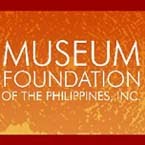
Is Moscow’s culture tsar Putin’s secret election weapon?
The Russian presidential candidate may be taking his cue from Sergei Kapkov, who transformed Moscow’s dilapidated Gorky Park into an arts haven
By Sophia Kishkovsky. Web only
Published online: 29 February 2012
Sergei Kapkov, a close associate of billionaire art collector and football entrepreneur Roman Abramovich and a member of Vladimir Putin's United Russia party, quickly made his mark on Moscow when he was put in charge of the dilapidated Gorky Park last March. He rapidly transformed a space known for tatty fairground rides and run-down ephemera from the Soviet regime into an attractive, sophisticated European park for Muscovites, with access to free wifi, cafes and yoga classes. The Garage Centre for Contemporary Art, founded and run by Abramovich's partner, Dasha Zhukova, is due to move to the park in spring this year.
Following his success with Gorky Park, Kapkov was appointed head of Moscow's department of culture late last year by Mayor Sergei Sobyanin and again wasted no time in taking headline-grabbing initiatives. One of first acts was to waive admission charges to city-run museums from 2 to 9 of January, during the school holidays. Kapkov told reporters that 93,000 people had visited the State Darwin Museum of Natural History during that period alone-only 400,000 had visited during the whole of 2011. One blogger reported that the queues had been longer than those for “the Lenin Mausoleum in Soviet times”. Part of the initiative has been maintained, with free access to city museums on the third Sunday of every month. And as part of his plans to make Moscow more culturally tourist-friendly, Kapkov also wants to introduce a museum pass and abolish two-tier admission fees, which make foreigners pay more than Russians. Mayor Sobyanin told a press conference on 14 February that nearly 30bn rubles have been allocated for cultural development in Moscow in 2012, almost 20 times more than in 2010.
“The Luzhkov [Sobyanin's predecessor as mayor] regime was so horrible, that it's not hard to do something based on common sense,” says Ilya Oskolkov-Tsentsiper, the president of the Strelka Institute for Art, Media and Design, a consultant on Gorky Park and other projects.
“Moscow is quite an aggressive city,” Kapkov told the Moscow Urban Forum conference in December. “People in this aggressive city try to put up boundaries between their personal space and the outside world. They put a huge fence up around their house or stay deep in their apartment. If they go out, it's to restricted areas, such as theatres or restaurants. From this we conclude that people draw a sharp distinction between personal and public space, private from public. They don't consider themselves responsible for public space. They don't think it belongs to them. It's not only that people limit their living space; it's that they don't feel their belonging to this space. They're not ready to deal with it themselves, and in this configuration they expect the state to give form to this space for them. This is bland and boring on the local level.”
Moscow is now giving residents and sponsors the opportunity to decorate public spaces, said Kapkov, who in the ensuing months has even been credited, through his new approach to Moscow's public spaces, with creating a more positive atmosphere at Moscow's latest anti-Putin rallies. Kapkov's girlfriend, Ksenia Sobchak, is a television reality show host who is the daughter of Anatoly Sobchak, the late mayor of St Petersburg and Putin's mentor, and she has attended the protest rallies. Sobchak tweeted from the first one at Bolotnaya Square that Kapkov was there with her-after tweeting about how proud she was that her entire yoga class was planning to attend.
By contrast, however, and perhaps mindful of where his loyalties lie, Kapkov ruffled feathers when he told Bolshoi Gorod, an opposition magazine, days after the controversial December elections, that nearly 700 pairs of ice skates, which had initially been available for use without a deposit, were stolen in the first five days of the opening of Gorky Park's new ice rink. “I love the park's visitors,” he told the magazine. “They're not riff-raff. There are all kinds of different people there. And they put the skates into their backpack and say: 'I'll never vote for the party of crooks and thieves,' ” he said, using a derogatory opposition nickname for United Russia. “I think the root of the problem is not the party, but in those people who steal skates.”
Putin, standing for his third term as Russian president on 4 March, might be heeding the new interest in public spaces. In January, while visiting the site of the former Rossiya Hotel, a late Soviet-era white elephant behind Red Square that was demolished in 2006 and remains a gaping hole after several thwarted development attempts, including plans to turn the site into a parliamentary centre, Putin suddenly told Mayor Sobyanin that it should be turned into a park.
“Maybe we should create a park zone right here in the centre of Moscow, by the Kremlin?” said Putin, in a scene broadcast on national television. Within hours, Kapkov was live on Ekho Moskvy (Moscow Echo) radio describing how the competition for developing the park will be carried out, and members of the liberal intelligentsia, chatting away on Facebook, found themselves suddenly praising Putin.





























































































